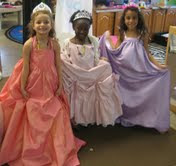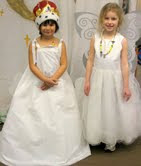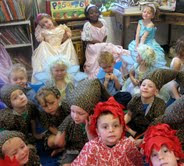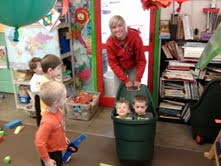 I’ve taught music to children on and off for years, and it’s not the best of choices. First, I have about as much musical sense as a deaf dog, and second, my voice is so low, I sound like Gravel Gertie. In fact, one of my goals is to reach the level of Elvis Presley singing “Old Man River.”
I’ve taught music to children on and off for years, and it’s not the best of choices. First, I have about as much musical sense as a deaf dog, and second, my voice is so low, I sound like Gravel Gertie. In fact, one of my goals is to reach the level of Elvis Presley singing “Old Man River.”
But whether I can or should teach music, I have. I’ve plunged in there because most people just don’t want to. I also have an opinion about what should be taught to children about music and most teachers roll their eyes at my ideas.
I think music is a many level discipline and children should get a full range of sounds, experiences and information early on because “early on” is where the interest in music comes from. By creating experiences in music, we create desire usually for more.
That was not the case in my own young life, and I have to go back to my own childhood to find out why my music interest is so poor. We never listened to anything in the house. There was never any music played, and my parents did not think a car radio was important, and I vaguely remember listening to music perhaps twice although we had a huge record player in the dining room. I always wondered what it was. As I was reading a biography on Theodore Roosevelt, the biographer said that Theodore abhorred music and found it a nuisance and chore to listen to. I can truly understand Theodore’s point of view. It’s a hyperactive response to that which takes brain power that is not familiar.
I don’t remember much Church music as a child – mostly the priest said a twelve minute Mass, and we were out before we had time to sing anything. He had been a foxhole priest in the second world war, and he could shoot through a Latin Mass like a bomb was about to fall.
But I did learn Gregorian Chant in school as a young child, and some hymns as a teenager, and then there were the once a week gatherings to sing songs in the playroom at school, but I was always asked to mouth the words because my voice, even as a child, was lower than anyone’s.
I played guitar as a teenager and loved it because it was LOW. Played classical piano as well, but was horrible at it. I finally was able to sing songs as a young woman when I got married. My husband taught History at a men’s college, and at Mass, the men would sing, and it was there – for the first time – my voice found a niche. So add up those experiences, and the end result is deprivation, disorder and ignorance.
None of these things do I want to happen to my kids at the Garden School. I want them to learn to sing with a group as a full functioning member of a choral group. I want them to enjoy singing children’s songs, songs from different historical periods of time, from show songs both new and old, just for fun songs that everyone sang as a child, the classics of church, and more. So finding music the children like is important and learning the lyrics so that one can teach effectively, so that the children can burst into song occasionally is the goal.
Children should learn to listen to music and interpret what they hear because so many children transition from auditory learners to visual learners with reading. Children should learn how to listen to something beautiful like music in order to be able to rely on auditory skills their whole life. A child should be exposed to the great masters of music like Beethoven, Bach, Handel, and Mozart. A child should be able to say if he or she likes the music or not and why.
Children should experience playing little musical instruments. They should be able to explore making sounds and adding sounds to sounds. They should be able to learn to discover how to make ordinary things into playable instruments – making sounds is a huge step into making musicians. If a child never touches a musical instrument, he will never know if he has an interest in becoming a musician.
Now accomplishing this is not a one person job. It’s a combined effort, because it’s a huge undertaking, and not something everyone can do. But it is something everyone should have a part in teaching and should not be shy about. Children never know that a teacher does not have a good voice, and children certainly are not critics of fine music. So the sky is the limit once again.
Establishing a music program for early childhood should be as easy as assigning days of the week to do one of the essentials. Monday we sing; Tuesday we listen; Wednesday we play instruments; Thursday we put body movement to music; Friday we review.












